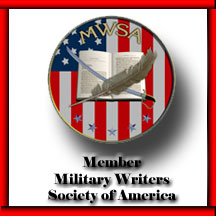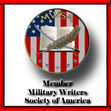|
Cold may hold hostages, but it takes no prisoners. Cold retreats, but it signs no armistice agreements. Cold has no conscience, attacking women and children as fiercely as men. It slams you from all sides, infiltrates any hole in your defense, seizes extremities, penetrates to the core of your being. Cold is silent as a shadow, deadly as a bullet, relentless as a new missionary. Cold is more treacherous than heat because it turns your body against you. When things get hot, clothing comes off to prevent overheating. But when the temperature falls to single digits, we grunts, we infantrymen, emulate onions. We wear wool and cotton socks inside ungainly vulcanized Mickey Mouse boots. Over skivvies we pull two sets of long johns, heavy wool pants and a shirt, thick cotton-twill field trousers, then a poplin field jacket with insulated lining, and finally a hooded parka with its own fleece liner. Steel helmets cover fur-lined pile caps. Scarves are twisted around necks. Thus cocooned while hauling a Garand or a Browning, a load of ammo and sixty pounds of field gear over steep mountains, we are soon drenched in sweat. When we are so exhausted that we can barely stand and word comes to take five, perspiration crystallizes to ice. Now we must expose our bodies to the elements, change soaking underwear and socks for dry ones — or risk losing toes, or even a foot, to frostbite. Even after such precautions, crotches chafe and blister under the constant friction of the march. Humping those rugged mountains consumes calories. We are always hungry. Playing at war against the time when such games become real, we eat field rations and hope for one hot meal a day, maybe breakfast. At midday we munch on the march or during brief breaks, prying out a chunk of ham-and-lima-beans or tuna-and-noodles or some other pathetic concoction with the tip of a bayonet, warming it on the tongue until it goes down without frosting the gullet. When we stop for the night, Sterno® thaws cans until we can gulp their half-frozen nutrition. We pack canteens under parkas to keep them from icing. Despite two years in Southern California, I am a Midwesterner, and after sixteen Chicago winters, I had supposed that the Korean seasons would hold no surprises — after all, Seoul is well south of Chicago. But the peninsula is surrounded by seas that retain heat, elevate atmospheric pressure, trap cold air above the land. The Land Of The Morning Calm is scored by deep mountain valleys between almost parallel ridges running toward Manchuria. Siberian cold barrels down these natural ducts, freezing stubble in the paddies and robust mountain rivers and the tiny hairs inside our noses. Even thinking back to my boyhood and an unexpected urban hike through a Great Lakes blizzard to pay a family debt, nothing I experienced in Chicago came close to preparing me for the Korean winter of 1960-61. In such cold, coping with bodily functions requires extraordinary effort. Voiding our bladders, the steaming yellow freezes as it reaches the ground. Our sergeants describe fastidious Wermacht soldiers on the Russian Front who pulled down trousers before squatting over slit trenches, then incurred frostbitten anuses that turned gangrenous. We pray for constipation. We hope that daylight will bring warmth enough to find relief without freezing our asses. Sometimes we are forced to emulate the Russians, who knew that filling one’s pants is uncivilized and uncomfortable but probably won't kill you. Gangrene can kill you. When it doesn’t, you’ll wish that it had. At dark we fan out by squads to take up defensive positions along a ridge. The wind is a knife and the earth is frozen concrete-hard so we can’t dig in. We spread ponchos and canvas shelter halves on the ground and climb fully dressed into sleeping bags — but can’t stop shivering long enough to doze off. About 9:00 the thermometer bottoms out near thirty below, plus severe wind chill. In pity, perhaps, orders come down from HQ in Seoul: training is suspended. "Units will implement administrative field procedures," comes the word. Squad fires are ordered; there is little to burn: Decades of woodcutters from tiny villages crouched in even the most remote valleys have cleared the ridges of trees. The farmers winter in their thatched huts, heating floors with homemade charcoal or the twigs and branches so laboriously cut in autumn. We grunts circle a pile of stones and after exhausted men haul up jerry cans of diesel, slop it on the stones, light it with our fake Zippos. The wind fans the flames; two feet away, our hands thaw — but our backsides stay frozen. Turning back-to-front every ten minutes, no one sleeps. At dawn the fires are extinguished. We return to mock attack, simulated withdrawal, to pretend battle, to our all-too-real war with winter. Days later we return to garrison, to drafty steel huts barely heated by oil stoves, to rats skittering beneath shaky plywood floors, to latrines and showers dispensing murky, undrinkable water. To an earthly paradise. Dante got it wrong: The damned are not doomed to sweat eternally in a toasty hereafter. Hell, as every grunt who survives a year in the Land of the Morning Calm knows, is almost as cold as Korea. © 2000 Marvin J. Wolf
0 Comments
|
FROM Marvin J. Wolf
On this page are true stories, magazine articles, excerpts from books and unpublished works, short fiction, and photographs, each offering a glimpse of my life, work and times. Your comments welcome. © Marvin J. Wolf. All rights reserved. Archives
October 2023
Categories
All
|
|
|
Member, Military Writers of America
|
Website © 2016 Marvin J. Wolf. All rights reserved on website design, images and text. ꟾ Updated regularly.
Design by Andesign. |
Professional Reader, NetGalley
|

 RSS Feed
RSS Feed
